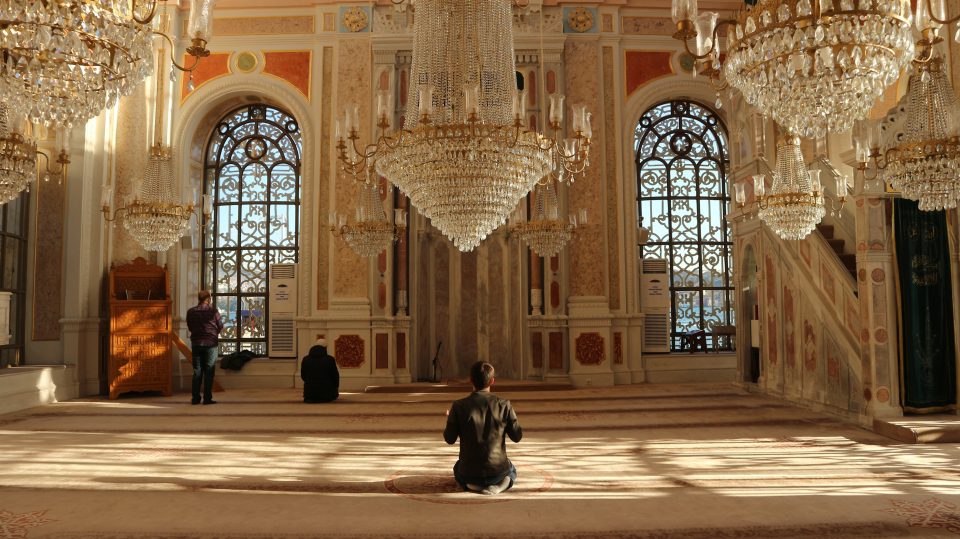Muslims throughout the globe on the 27th of Rajab of the Islamic calendar of Hijrah (18th February 2023) will commemorate Isra’ Mikraj.
The event is translated as the “Night Journey” in which Allah the Exalted caused the Prophet Muhammad (Peace Be Upon Him) to travel with Angel Gabriel from Masjid al-Haram in Mecca to Masjid al-Aqsa in Jerusalem, and upward to the heavens.
Apart from remembering the journey of Prophet Muhammad (PBUH) from Mecca to Heaven on Isra’ Mikraj, Muslims should take lessons from the events of Isra’ Mikraj as it offers a wealth of knowledge, lessons, and wisdom towards the path of a true Muslim which in turn will internalise the values of prayers.
The first and foremost thing to remember, of course, is that it was the day when salat (prayers) became an obligation for Muslims. Even Prophet Muhammad was not excluded from praying for help from Allah.
Isra’ Mikraj should be a time when Muslims reevaluate their religious practices, especially prayers. Muslims should question whether or not they have been conducting and perfecting the prayers correctly.
Amid the country’s low productivity rate, particularly among public servants, prayers are key to disciplining Muslim individuals. The timing of prayers is a good example. Keeping up with the prayer times can also discipline us when it comes to meeting up on deadlines at work or at school and at the same time, prioritising Allah the Almighty over other things. At a broader level, fine-tuning our activities inspired and bolstered by the prayers could also discipline Muslim individuals.
Second, the event teaches one to never despair from the Mercy of Allah and to be strong in the face of trials and hardships by virtue of one’s closeness with Allah. The miraculous Night Journey, according to historians, happened in the year 621 AD. It was the twelfth year of the Prophet’s mission to call people to worship the only one Allah (tawhîd).
The year was especially hard as Mecca’s Quraish pagan community intensified their fierce opposition against the Prophet, especially after his main supporters, Khadijah and Abu Thalib, the beloved wife and uncle, passed away. His companions were abused, taunted, wounded, and their children cried of hunger.
Amid such difficulties, prayers are a Muslim’s weapon against adversity as well as in showing gratitude towards Allah the Almighty. Muslims as normal people should pray not only during difficult times but also during times when they are not burdened by any hardship. With prayers, however, people should not expect them to be fulfilled overnight. This does not mean that God has forgotten His subjects, but in a way, it is to test their patience before receiving their rewards.
Third, the historical accounts of the Phrophet’s journey give us an insight into the tremendous test of faith in the event. The disbelievers then laughed uproariously and jeered at the Prophet when he recounted the journey because they simply could not fathom that a human being would ever be able to make such a journey, and on a mount whose name means “to send out light”: al-Buraq.
While people laughed at the Prophet and called him mad simply because of their ignorance and inability to conceive such an event ever taking place, Abu Bakr as-Siddiq declared that he believed in the Prophet’s account of the journey, even if he had said more than that. He accepted the instruction for prayers and beyond. This was faith.
Of course today, science tells us that light is the fastest-travelling entity in the world. It travels at the speed of 700 million miles an hour. So al-Buraq was not a figment of Muhammad’s imagination. Today, we see man-made rockets and missiles travelling miles in minutes. So it should have been easier for men of today to accept and have faith in the fact that when man, who is a creature of Allah can create such fast-travelling machines, then why cannot Allah, the Creator of mankind, create a beast who could travel millions of miles in one night?
Today, Muslim scholars and teachers who give lectures at Isra’ Mikraj functions usually talk about the metaphysical voyage from various dimensions, not only from religious and literary points of view but also technology, especially space technology. A theme which could motivate Muslims, particularly the younger generation, is to look back at the miraculous event and to look ahead by studying and mastering the sciences.
At last, Muslims must get a better understanding of the importance of major Islamic events. Muslim scholars and relevant authorities need to disseminate more information on people so that they could enliven major events in Islam, such as Isra’ Mikraj. Muslims, especially young people, only know of the day as a public holiday but did not know how to celebrate the Islamic historical event.
The writer is a lecturer at the Faculty of Humanities, Andalas University.




